#gen z mental health
Text

40K notes
·
View notes
Text
A Little Magic to Soothe Your Anxiety



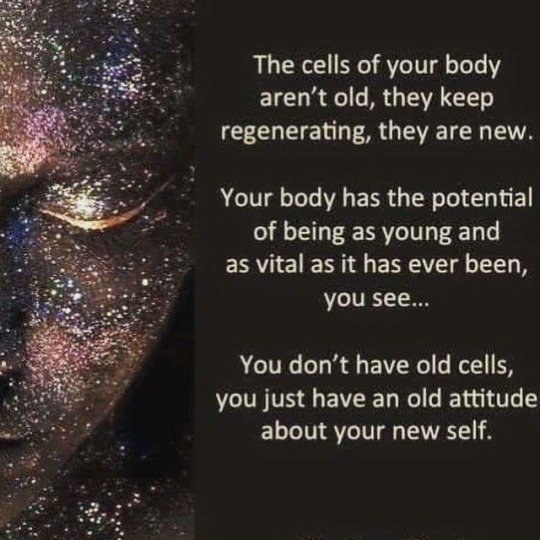
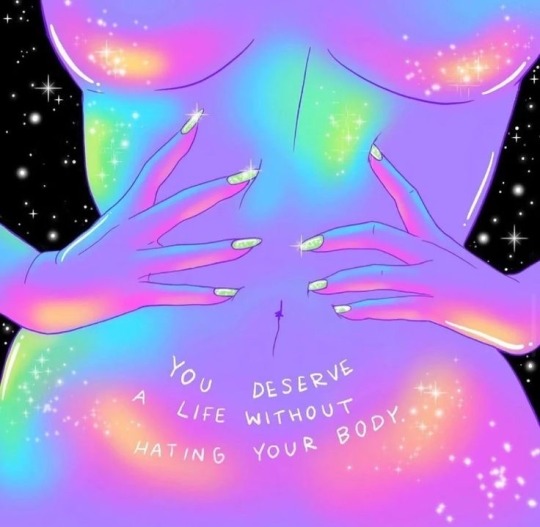




Everything becomes OK in the end. If it's not OK yet, it's not the end.
#Pink Punk Mads#quotes#spirituality#spiritualhealing#mental health#mindset#positivity#gratitude#magick#witchythings#loa#manifestation#affirmations#starseed#lightworker#millennials#gen z#happy#beauty#moodboard
192 notes
·
View notes
Text
i love having trauma from an alarmingly young age because when I can't remember stuff from my childhood I get to play a game called "Is This Normal Memory Loss From Growing Up, Or Do I Have Severe Trauma-Induced Memory Repression?"
#memes#therapy#therapy memes#therapy humor#mental illness#mental health#mental health humor#gallows humor#dark humor#gen z funny#gen z memes#gen z#gen z humor#gen z experience#trauma jokes
400 notes
·
View notes
Text
sometimes the state of the world makes me want to go outside and scream as loud as i can for help. sometimes it makes me want to crawl deep into a hole and never come back out again. sometimes it makes me want to fall to my knees and sob uncontrollably. sometimes it seems so hopeless that i cant see any better alternative other than just disappearing.
so much evil and destruction and suffering-- and for what?
what is it all for?
for the latest popular billionare to take a 13 minute flight? for the newest remake of a movie that changed my life to get turned into mindless sludge? for a never-before-seen species of animal to be discovered, then pronounced extinct the very next week? for millions of people to go broke for having cancer?
i tell my mother that i wont be able to afford a house. she says "no, you will." i tell my counselor that my government wants to kill me. she says "that's not true." i tell my teachers i don't see a point in doing well in school because i wont be able to get a job anyway, even if i have a college degree. they tell me "no, you'll get a job. school is still important." i email my senators begging them to stop funding the genocide in Palestine. i get a copy-pasted email back with a history lesson about why that wont happen. one million people died from COVID last Christmas and i'm the only one at my school still wearing a mask. my future as an artist was ripped from my hands in less than two years and pretty soon i wont be able to share anything about my art at all. i'm half mexican, but everybody says i'm "too white" to be a "real mexican". its been four years and i'm nowhere closer to understanding my gender identity than i was at the start. tumblr has been my only safe space for three years and now that KOSA might pass this week, where will i go?
and all the while, through all of this conflict-- people are still falling in love for the first time and rescuing kittens off the street and watching their children take their first steps and getting married and making fun little indie games and building elaborate cosplays of their favorite character and making the most heart-touchingly beautiful pieces of art you've ever seen and meeting lifelong friends and cooking amazingly delicious food and playing children's games and weaving baskets from pine needles and taking care of livestock and collecting little knick-knacks and having the best day of their lives and writing their first line of code and learning to play instruments and hatching baby birds and posting a 100K word thesis about a show they really like and uploading song covers for 19 people on Youtube to listen to and pushing the boundaries of what science can accomplish and discussing moral philosophies in the comment section of a Reddit post and feeling truly seen in the eyes of another human being for the first time in their lives and growing old surrounded by the people they love.
the future is uncertain, but the world will go on. the winds will still blow and the tides will still flow. people will continue to find joy in this hell and fight for it with everything they have.
so don't give up.
"don't give up," i tell myself.
"don't give up," i tell you.
"don't give up," i scream into the sky.
there is always something to keep going for. if you cannot find it in yourself, find it in others. find it in the people in your life and the people you see online. find it in the good of humanity you know to exist.
find it. keep fighting. don't give up.
#at the end of it all i do consider myself a poet#if this reaches even one person#and gives them the strength to keep going#i would consider it a success#tomothy rambles#serious post#gen z#capitalism#climate change#palestine#free palestine#lgbtqia+#queer#trans#vent#mental health#anxiety#depression
54 notes
·
View notes
Text
HORRIFIC REALIZATION
I just solved why iPad kids exist and why people hate them
ITS FUCKING ABLEISM AGAIN, ITS MOTHER FUCKING ABLEISM!
holy shit how did I not figure this out it should have been OBVIOUS, it’s literally repackaged autism hate.
remember the shit people keep complaining about?
“They don’t understand social cues” “they don’t talk” “they are mute” “they only like skibidi toilet” “their attention span is so short” “they are loud” “they don’t like people” “they yell and scream”
all that shit, and more they keep saying.
oh my actual fucking god, they don’t care about the kids they just hate neurodivergent kids.
listen tho, listen to me.
I’m autistic/adhd, I used to yell and scream and meltdown, I used to be mute, I have a “short attention span” I am all those things. And I used an iPad, but I was all those things prior, I had always been.
There is no such thing as “iPad kid brainrot” ITS MOTHER FUCKING UNDIAGNOSED NEURODIVERGENCE!
IT ALL MAKES FUCKING SENSE THO?!
It all makes SENSE, oh my actual god how the fuck did it take me so long to figure it out.
you may think I;m crazy but think about it for a minute, just please think.
the rise in autism and neurodiversity awareness, the rise of dignosis in women and children, and acceptance.
and also the fact that neurotypical people can pick autistic and neurodivergent people out immediately, and how they are reacting to iPad kids.
like think about it, it makes mother FUCKING SENSE!
why all of a sudden? Why not before? Why is there this burning hatred for these kids?
like it’s because they are the undiagnosed kids, they are the mentally ill kids, they present like this, I should know!
I KNOW LITERALLY LIKE 3 OF THEM! Personally and closely
AND HAVE MET AND DISCUSSED WITH LIKE 200+
you guys it all makes sense!
why it felts so icky to me, the demonization, and generalization.
just it clicks together now.
like holy shit, it makes so much sense.
#-pop2/belle#activism stuff#disability#mental health stuff#mental illness#mental health#actually mentally ill#autism#neurodivergent#autistic#actually autistic#actually neurodivergent#neurodiversity#ipad kid#ipad kids#gen alpha#millennials#gen z culture#Ableism#disability rights#youth rights#youth liberation
70 notes
·
View notes
Text

By: Jon Haidt
Published: Mar 9, 2023
In May 2014, Greg Lukianoff invited me to lunch to talk about something he was seeing on college campuses that disturbed him. Greg is the president of FIRE (the Foundation for Individual Rights and Expression), and he has worked tirelessly since 2001 to defend the free speech rights of college students. That almost always meant pushing back against administrators who didn’t want students to cause trouble, and who justified their suppression of speech with appeals to the emotional “safety” of students—appeals that the students themselves didn’t buy. But in late 2013, Greg began to encounter new cases in which students were pushing to ban speakers, punish people for ordinary speech, or implement policies that would chill free speech. These students arrived on campus in the fall of 2013 already accepting the idea that books, words, and ideas could hurt them. Why did so many students in 2013 believe this, when there was little sign of such beliefs in 2011?
Greg is prone to depression, and after hospitalization for a serious episode in 2007, Greg learned CBT (Cognitive Behavioral Therapy). In CBT you learn to recognize when your ruminations and automatic thinking patterns exemplify one or more of about a dozen “cognitive distortions,” such as catastrophizing, black-and-white thinking, fortune telling, or emotional reasoning. Thinking in these ways causes depression, as well as being a symptom of depression. Breaking out of these painful distortions is a cure for depression.
What Greg saw in 2013 were students justifying the suppression of speech and the punishment of dissent using the exact distortions that Greg had learned to free himself from. Students were saying that an unorthodox speaker on campus would cause severe harm to vulnerable students (catastrophizing); they were using their emotions as proof that a text should be removed from a syllabus (emotional reasoning). Greg hypothesized that if colleges supported the use of these cognitive distortions, rather than teaching students skills of critical thinking (which is basically what CBT is), then this could cause students to become depressed. Greg feared that colleges were performing reverse CBT.
I thought the idea was brilliant because I had just begun to see these new ways of thinking among some students at NYU. I volunteered to help Greg write it up, and in August 2015 our essay appeared in The Atlantic with the title: The Coddling of the American Mind. Greg did not like that title; his original suggestion was “Arguing Towards Misery: How Campuses Teach Cognitive Distortions.” He wanted to put the reverse CBT hypothesis in the title.
After our essay came out, things on campus got much worse. The fall of 2015 marked the beginning of a period of protests and high-profile conflicts on campus that led many or most universities to implement policies that embedded this new way of thinking into campus culture with administrative expansions such as “bias response teams” to investigate reports of “microaggressions.” Surveys began to show that most students and professors felt that they had to self-censor. The phrase “walking on eggshells” became common. Trust in higher ed plummeted, along with the joy of intellectual discovery and sense of goodwill that had marked university life throughout my career.
Greg and I decided to expand our original essay into a book in which we delved into the many causes of the sudden change in campus culture. Our book focused on three “great untruths” that seemed to be widely believed by the students who were trying to shut down speech and prosecute dissent:
1. What doesn’t kill you makes you weaker
2. Always trust your feelings
3. Life is a battle between good people and evil people.
Each of these untruths was the exact opposite of a chapter in my first book, The Happiness Hypothesis, which explored ten Great Truths passed down to us from ancient societies east and west. We published our book in 2018 with the title, once again, of The Coddling of the American Mind. Once again, Greg did not like the title. He wanted the book to be called “Disempowered,” to capture the way that students who embrace the three great untruths lose their sense of agency. He wanted to capture reverse CBT.
The Discovery of the Gender-by-Politics Interaction
In September 2020, Zach Goldberg, who was then a graduate student at Georgia State University, discovered something interesting in a dataset made public by Pew Research. Pew surveyed about 12,000 people in March 2020, during the first month of the Covid shutdowns. The survey included this item: “Has a doctor or other healthcare provider EVER told you that you have a mental health condition?” Goldberg graphed the percentage of respondents who said “yes” to that item as a function of their self-placement on the liberal-conservative 5-point scale and found that white liberals were much more likely to say yes than white moderates and conservatives. (His analyses for non-white groups generally found small or inconsistent relationships with politics.)
I wrote to Goldberg and asked him to redo it for men and women separately, and for young vs. old separately. He did, and he found that the relationship to politics was much stronger for young (white) women. You can see Goldberg’s graph here, but I find it hard to interpret a three-way interaction using bar charts, so I downloaded the Pew dataset and created line graphs, which make it easier to interpret.
Here’s the same data, showing three main effects: gender (women higher), age (youngest groups higher), and politics (liberals higher). The graphs also show three two-way interactions (young women higher, liberal women higher, young liberals higher). And there’s an important three-way interaction: it is the young liberal women who are highest. They are so high that a majority of them said yes, they had been told that they have a mental health condition.

Figure 1. Data from Pew Research, American Trends Panel Wave 64. The survey was fielded March 19-24, 2020. Graphed by Jon Haidt.
In recent weeks—since the publication of the CDC’s report on the high and rising rates of depression and anxiety among teens—there has been a lot of attention to a different study that shows the gender-by-politics interaction: Gimbrone, Bates, Prins, & Keyes (2022), titled: “The politics of depression: Diverging trends in internalizing symptoms among US adolescents by political beliefs.” Gimbrone et al. examined trends in the Monitoring the Future dataset, which is the only major US survey of adolescents that asks high school students (seniors) to self-identify as liberal or conservative (using a 5-point scale). The survey asks four items about mood/depression. Gimbrone et al. found that prior to 2012 there were no sex differences and only a small difference between liberals and conservatives. But beginning in 2012, the liberal girls began to rise, and they rose the most. The other three groups followed suit, although none rose as much, in absolute terms, as did the liberal girls (who rose .73 points since 2010, on a 5-point scale where the standard deviation is .89).

Figure 2. Data from Monitoring the Future, graphed by Gimbrone et al. (2022). The scale runs from 1 (minimum) to 5 (maximum).
The authors of the study try to explain the fact that liberals rise first and most in terms of the terrible things that conservatives were doing during Obama’s second term, e.g.,
Liberal adolescents may have therefore experienced alienation within a growing conservative political climate such that their mental health suffered in comparison to that of their conservative peers whose hegemonic views were flourishing.
The progressive New York Times columnist Michelle Goldberg took up the question and wrote a superb essay making the argument that teen mental health is not and must not become a partisan issue. She dismissed Gimbrone et al.’s explanation as having a poor fit with their own data:
Barack Obama was re-elected in 2012. In 2013, the Supreme Court extended gay marriage rights. It was hard to draw a direct link between that period’s political events and teenage depression, which in 2012 started an increase that has continued, unabated, until today.
After examining the evidence, including the fact that the same trends happened at the same time in Britain, Canada, and Australia, Goldberg concluded that “Technology, not politics, was what changed in all these countries around 2012. That was the year that Facebook bought Instagram and the word “selfie” entered the popular lexicon.”
Journalist Matt Yglesias also took up the puzzle of why liberal girls became more depressed than others, and in a long and self-reflective Substack post, he described what he has learned about depression from his own struggles involving many kinds of treatment. Like Michelle Goldberg, he briefly considered the hypothesis that liberals are depressed because they’re the only ones who see that “we’re living in a late-stage capitalist hellscape during an ongoing deadly pandemic w record wealth inequality, 0 social safety net/job security, as climate change cooks the world,” to quote a tweet from the Washington Post tech columnist Taylor Lorenz. Yglesias agreed with Goldberg and other writers that the Lorenz explanation—reality makes Gen Z depressed—doesn’t fit the data, and, because of his knowledge of depression, he focused on the reverse path: depression makes reality look terrible. As he put it: “Mentally processing ambiguous events with a negative spin is just what depression is.”
Yglesias tells us what he has learned from years of therapy, which clearly involved CBT:
It’s important to reframe your emotional response as something that’s under your control:
• Stop saying “so-and-so made me angry by doing X.”
• Instead say “so-and-so did X, and I reacted by becoming angry.”
And the question you then ask yourself is whether becoming angry made things better? Did it solve the problem?
Yglesias wrote that “part of helping people get out of their trap is teaching them not to catastrophize.” He then described an essay by progressive journalist Jill Filipovic that argued, in Yglesias’s words, that “progressive institutional leaders have specifically taught young progressives that catastrophizing is a good way to get what they want.”
Yglesias quoted a passage from Filipovic that expressed exactly the concern that Greg had expressed to me back in 2014:
I am increasingly convinced that there are tremendously negative long-term consequences, especially to young people, coming from this reliance on the language of harm and accusations that things one finds offensive are “deeply problematic” or even violent. Just about everything researchers understand about resilience and mental well-being suggests that people who feel like they are the chief architects of their own life — to mix metaphors, that they captain their own ship, not that they are simply being tossed around by an uncontrollable ocean — are vastly better off than people whose default position is victimization, hurt, and a sense that life simply happens to them and they have no control over their response.
I have italicized Filipovic’s text about the benefits of feeling like you captain your own ship because it points to a psychological construct with a long history of research and measurement: Locus of control. As first laid out by Julian Rotter in the 1950s, this is a malleable personality trait referring to the fact that some people have an internal locus of control—they feel as if they have the power to choose a course of action and make it happen, while other people have an external locus of control—they have little sense of agency and they believe that strong forces or agents outside of themselves will determine what happens to them. Sixty years of research show that people with an internal locus of control are happier and achieve more. People with an external locus of control are more passive and more likely to become depressed.
How a Phone-Based Childhood Breeds Passivity
There are at least two ways to explain why liberal girls became depressed faster than other groups at the exact time (around 2012) when teens traded in their flip phones for smartphones and the girls joined Instagram en masse. The first and simplest explanation is that liberal girls simply used social media more than any other group. Jean Twenge’s forthcoming book, Generations, is full of amazing graphs and insightful explanations of generational differences. In her chapter on Gen Z, she shows that liberal teen girls are by far the most likely to report that they spend five or more hours a day on social media (31% in recent years, compared to 22% for conservative girls, 18% for liberal boys, and just 13% for conservative boys). Being an ultra-heavy user means that you have less time available for everything else, including time “in real life” with your friends. Twenge shows in another graph that from the 1970s through the early 2000s, liberal girls spent more time with friends than conservative girls. But after 2010 their time with friends drops so fast that by 2016 they are spending less time with friends than are conservative girls. So part of the story may be that social media took over the lives of liberal girls more than any other group, and it is now clear that heavy use of social media damages mental health, especially during early puberty.
But I think there’s more going on here than the quantity of time on social media. Like Filipovic, Yglesias, Goldberg, and Lukianoff, I think there’s something about the messages liberal girls consume that is more damaging to mental health than those consumed by other groups.
The Monitoring the Future dataset happens to have within it an 8-item Locus of Control scale. With Twenge’s permission, I reprint one such graph from Generations showing responses to one of the items: “Every time I try to get ahead, something or somebody stops me.” This item is a good proxy for Filipovic’s hypothesis about the disempowering effects of progressive institutions. If you agree with that item, you have a more external locus of control. As you can see in Figure 3, from the 1970s until the mid-2000s, boys were a bit more likely to agree with that item, but then girls rose to match boys, and then both sexes rose continuously throughout the 2010s—the era when teen social life became far more heavily phone-based.
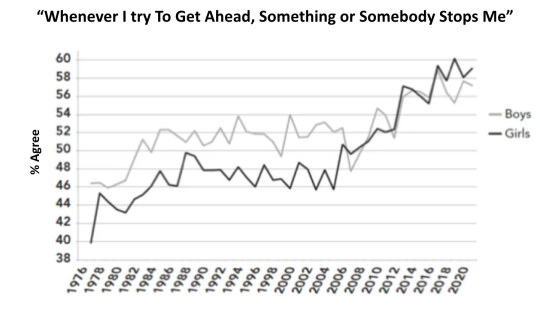
Figure 3. Percentage of boys and girls (high school seniors) who agree with (or are neutral about) the statement “Every time I try to get ahead, something or somebody stops me.” From Monitoring the Future, graphed by Jean Twenge in her forthcoming book Generations.
When the discussion of the gender-by-politics interaction broke out a few weeks ago, I thought back to Twenge’s graph and wondered what would happen if we broke up the sexes by politics. Would it give us the pattern in the Gimbrone et al. graphs, where the liberal girls rise first and most? Twenge sent me her data file (it’s a tricky one to assemble, across the many years), and Zach Rausch and I started looking for the interaction. We found some exciting hints, and I began writing this post on the assumption that we had a major discovery. For example, Figure 4 shows the item that Twenge analyzed. We see something like the Gimbrone et al. pattern in which it’s the liberal girls who depart from everyone else, in the unhealthy (external) direction, starting in the early 2000s.

Figure 4. Percentage of liberal and conservative high school senior boys (left panel) and girls (right panel) who agree with the statement “Every time I try to get ahead, something or somebody stops me.” From Monitoring the Future, graphed by Zach Rausch.
It sure looks like the liberal girls are getting more external while the conservative girls are, if anything, trending slightly more internal in the last decade, and the boys are just bouncing around randomly. But that was just for this one item. We also found a similar pattern for a second item, “People like me don’t have much of a chance at a successful life.” (You can see graphs of all 8 items here.)
We were excited to have found such clear evidence of the interaction, but when we plotted responses to the whole scale, we found only a hint of the predicted interaction, and only in the last few years, as you can see in Figure 5. After trying a few different graphing strategies, and after seeing if there was a good statistical justification for dropping any items, we reached the tentative conclusion that the big story about locus of control is not about liberal girls, it’s about Gen Z as a whole. Everyone—boys and girls, left and right—developed a more external locus of control gradually, beginning in the 1990s. I’ll come back to this finding in future posts as I explore the second strand of the After Babel Substack: the loss of “play-based childhood” which happened in the 1990s when American parents (and British, and Canadian) stopped letting their children out to play and explore, unsupervised. (See Frank Furedi’s important book Paranoid Parenting. I believe that the loss of free play and self-supervised risk-taking blocked the development of a healthy, normal, internal locus of control. That is the reason I teamed up with Lenore Skenazy, Peter Gray, and Daniel Shuchman to found LetGrow.org.)
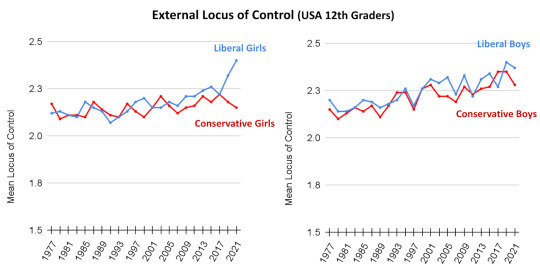
Figure 5. Locus of Control has shifted slightly but steadily toward external since the 1990s. Scores are on a 5-point scale from 1 = most internal to 5 = most external.
We kept looking in the Monitoring the Future dataset and the Gimbrone et al. paper for other items that would allow us to test Filipovic’s hypothesis. We found an ideal second set of variables: The Monitoring the Future dataset has a set of items on “self derogation” which is closely related to disempowerment, as you can see from the four statements that comprise the scale:
I feel I do not have much to be proud of.
Sometimes I think I am no good at all.
I feel that I can't do anything right.
I feel that my life is not very useful.
Gimbrone et al. had graphed the self-derogation scale, as you can see in their appendix (Figure A.4). But Zach and I re-graphed the original data so that we could show a larger range of years, from 1977 through 2021. As you can see in Figure 6, we find the gender-by-politics interaction. Once again, and as with nearly all of the mental health indicators I examined in a previous post, there’s no sign of trouble before 2010. But right around 2012 the line for liberal girls starts to rise. It rises first, and it rises most, with liberal boys not far behind (as in Gimbrone et al.).

Figure 6. Self-derogation scale, averaging four items from the Monitoring the Future study. Graphed by Zach Rausch. The scale runs from 1 (strongly disagree with each statement) to 5 (strongly agree).
In other words, we have support for Filipovic’s “captain their own ship” concern, and for Lukianoff’s disempowerment concern: Gen Z has become more external in its locus of control, and Gen Z liberals (of both sexes) have become more self-derogating. They are more likely to agree that they “can’t do anything right.” Furthermore, most of the young people in the progressive institutions that Filipovic mentioned are women, and that has become even more true since 2014 when, according to Gallup data, young women began to move to the left while young men did not move either way. As Gen Z women became more progressive and more involved in political activism in the 2010s, it seems to have changed them psychologically. It wasn’t just that their locus of control shifted toward external—that happened to all subsets of Gen Z. Rather, young liberals (including young men) seem to have taken into themselves the specific depressive cognitions and distorted ways of thinking that CBT is designed to expunge.
But where did they learn to think this way? And why did it start so suddenly around 2012 or 2013, as Greg observed, and as Figures 2 and 6 confirm?
Tumblr Was the Petri Dish for Disempowering Beliefs
I recently listened to a brilliant podcast series, The Witch Trials of J. K. Rowling, hosted by Megan Phelps-Roper, created within Bari Weiss’s Free Press. Phelps-Roper interviews Rowling about her difficult years developing the Harry Potter stories in the early 1990s, before the internet; her rollout of the books in the late 90s and early 2000s, during the early years of the internet; and her observations about the Harry Potter superfan communities that the internet fostered. These groups had streaks of cruelty and exclusion in them from the beginning, along with a great deal of love, joy, and community. But in the stunning third episode, Phelps-Roper and Rowling take us through the dizzying events of the early 2010s as the social media site Tumblr exploded in popularity (reaching its peak in early 2014), and also in viciousness. Tumblr was different from Facebook and other sites because it was not based on anyone’s social network; it brought together people from anywhere in the world who shared an interest, and often an obsession.
Phelps-Roper interviewed several experts who all pointed to Tumblr as the main petri dish in which nascent ideas of identity, fragility, language, harm, and victimhood evolved and intermixed. Angela Nagle (author of Kill All Normies) described the culture that emerged among young activists on Tumblr, especially around gender identity, in this way:
There was a culture that was encouraged on Tumblr, which was to be able to describe your unique non-normative self… And that’s to some extent a feature of modern society anyway. But it was taken to such an extreme that people began to describe this as the snowflake [referring to the idea that each snowflake is unique], the person who constructs a totally kind of boutique identity for themselves, and then guards that identity in a very, very sensitive way and reacts in an enraged way when anyone does not respect the uniqueness of their identity.
Nagle described how on the other side of the political spectrum, there was “the most insensitive culture imaginable, which was the culture of 4chan.” The communities involved in gender activism on Tumblr were mostly young progressive women while 4Chan was mostly used by right-leaning young men, so there was an increasingly gendered nature to the online conflict. The two communities supercharged each other with their mutual hatred, as often happens in a culture war. The young identity activists on Tumblr embraced their new notions of identity, fragility, and trauma all the more tightly, increasingly saying that words are a form of violence, while the young men on 4chan moved in the opposite direction: they brandished a rough and rude masculinity in which status was gained by using words more insensitively than the next guy. It was out of this reciprocal dynamic, the experts on the podcast suggest, that today’s cancel culture was born in the early 2010s. Then, in 2013, it escaped from Tumblr into the much larger Twitterverse. Once on Twitter, it went national and even global (at least within the English-speaking countries), producing the mess we all live with today.
I don’t want to tell that entire story here; please listen to the Witch Trials podcast for yourself. It is among the most enlightening things I’ve read or heard in all my years studying the American culture war (along with Jon Ronson’s podcast Things Fell Apart). I just want to note that this story fits perfectly with both the timing and the psychology of Greg’s reverse CBT hypothesis.
Implications and Policy Changes
In conclusion, I believe that Greg Lukianoff was exactly right in the diagnosis he shared with me in 2014. Many young people had suddenly—around 2013—embraced three great untruths:
They came to believe that they were fragile and would be harmed by books, speakers, and words, which they learned were forms of violence (Great Untruth #1).
They came to believe that their emotions—especially their anxieties—were reliable guides to reality (Great Untruth #2).
They came to see society as comprised of victims and oppressors—good people and bad people (Great Untruth #3).
Liberals embraced these beliefs more than conservatives. Young liberal women adopted them more than any other group due to their heavier use of social media and their participation in online communities that developed new disempowering ideas. These cognitive distortions then caused them to become more anxious and depressed than other groups. Just as Greg had feared, many universities and progressive institutions embraced these three untruths and implemented programs that performed reverse CBT on young people, in violation of their duty to care for them and educate them.
I welcome challenges to this conclusion from scholars, journalists, and subscribers, and I will address such challenges in future posts. I must also repeat that I don’t blame everything on smartphones and social media; the other strand of my story is the loss of play-based childhood, with its free play and self-governed risk-taking. But if this conclusion stands (along with my conclusions in previous posts), then I think there are two big policy changes that should be implemented as soon as possible:
1) Universities and other schools should stop performing reverse CBT on their students
As Greg and I showed in The Coddling of the American Mind, most of the programs put in place after the campus protests of 2015 are based on one or more of the three Great Untruths, and these programs have been imported into many K-12 schools. From mandatory diversity training to bias response teams and trigger warnings, there is little evidence that these programs do what they say they do, and there are some findings that they backfire. In any case, there are reasons, as I have shown, to worry that they teach children and adolescents to embrace harmful, depressogenic cognitive distortions.
One initiative that has become popular in the last few years is particularly suspect: efforts to tell college students to avoid common English words and phrases that are said to be “harmful.” Brandeis University took the lead in 2021 with its “oppressive language list.” Brandeis urged its students to stop saying that they would “take a stab at” something because it was unnecessarily violent. For the same reason, they urged that nobody ask for a “trigger warning” because, well, guns. Students should ask for “content warnings” instead, to keep themselves safe from violent words like “stab.” Many universities have followed suit, including Colorado State University, The University of British Columbia, The University of Washington, and Stanford, which eventually withdrew its “harmful language list” because of the adverse publicity. Stanford had urged students to avoid words like “American,” “Immigrant,” and “submit,” as in “submit your homework.” Why? because the word “submit” can “imply allowing others to have power over you.” The irony here is that it may be these very programs that are causing liberal students to feel disempowered, as if they are floating in a sea of harmful words and people when, in reality, they are living in some of the most welcoming and safe environments ever created.
2) The US Congress should raise the age of “internet adulthood” from 13 to 16 or 18
What do you think should be the minimum age at which children can sign a legally binding contract to give away their data and their rights, and expose themselves to harmful content, without the consent or knowledge of their parents? I asked that question as a Twitter poll, and you can see the results here:

Image: See my original tweet.
Of course, this poll of my own Twitter followers is far from a valid survey, and I phrased my question in a leading way, but my phrasing was an accurate statement of today’s status quo. I think that most people now understand that the age of 13, which was set back in 1998 when we didn’t know what the internet would become, is just too low, and it is not even enforced. When my kids started 6th grade in NYC public schools, they each told me that “everyone” was on Instagram.
We are now 11 years into the largest epidemic of adolescent mental illness ever recorded. I know so many families that have been thrown into fear and turmoil by a child’s suicide attempt. You probably do too, given that the recent CDC report tells us that one in ten adolescents now say they have made an attempt to kill themselves. It is hitting all political and demographic groups. The evidence is abundant that social media is a major cause of the epidemic, and perhaps the major cause. It's time we started treating social media and other apps designed for “engagement” (i.e., addiction) like alcohol, tobacco, and gambling, or, because they can harm society as well as their users, perhaps like automobiles and firearms. Adults should have wide latitude to make their own choices, but legislators and governors who care about mental health, women’s health, or children’s health need to step up.
It’s not enough to find more money for mental health services, although that is sorely needed. In addition, we must shut down the conveyer belt so that today’s toddlers will not suffer the same fate in twelve years. Congress should set a reasonable minimum age for minors to sign contracts and open accounts without explicit parental consent, and the age needs to be after teens have progressed most of the way through puberty. (The harm caused by social media seems to be greatest during puberty.) If Congress won’t do it then state legislatures should act. There are many ways to rapidly verify people’s ages online, and I’ll discuss age verification processes in a future post.
In conclusion: All of Gen Z got more anxious and depressed after 2012. But Lukianoff’s reverse CBT hypothesis is the best explanation I have found for Why the mental health of liberal girls sank first and fastest.
#Jonathan Haidt#Greg Lukianoff#Reverse CBT#reverse cognitive behavioral therapy#cognitive behavioral therapy#emotional fragility#fragility#emotional reasoning#external locus#internal locus#victimhood#victimhood culture#Generation Z#Gen Z#anxiety#depression#mental health#mental health issues#trauma#personal identity#hellsite#Tumblr culture#religion is a mental illness
320 notes
·
View notes
Text
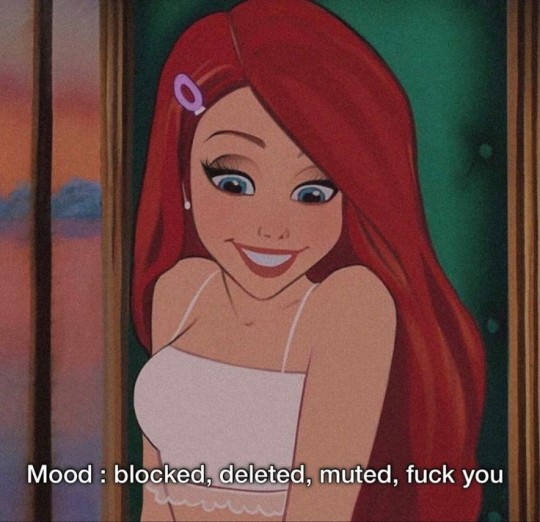
Anxious People assemble 🤝
also fuck negativity in any (human) forms!🥂
#introvert#social anxiety#anxious#college memes#university#university life#college life#fake friends#positive mental health#mental health#self care#self worth#gen z humor#humour#bad bitxh#savage#so sassy#memesdaily#positive memes#dark memes#dark academia#romantic academia#aesthetic#quotes#confidence#chillax#the perks of being a wallflower#loner life
1K notes
·
View notes
Text
This former “gifted kid” felt seen as hell during the “Make It, Don’t Break It” ep. I experienced so many things Lunella did:
Having everything come so easy, and then feeling blindsided when hit with a challenge or an assignment that you can’t manage, or even one that requires a little extra effort.
Difficulty accepting constructive criticism and being completely unable to deal with it when it’s mean-spirited or even comes out too harsh.
Internalizing someone’s intimation that you aren’t doing your best or could do better, playing it inside your head on repeat to the point it drowns out everything else.
Shutting out family, friends, hobbies—everything you enjoy—because whatever assignment you’re working on must be flawless. You have a reputation to uphold, after all.
Disdaining group projects because you think you work better alone. Besides, all those other lazy dum-dums in your class will only hold you back, or they’ll expect you to do all the work. Then you find out that the other kids got the job done and they had more fun doing it.
Experiencing a personal setback, like an unexpectedly bad grade on a test, or a public humiliation, like losing a major competition, and going fetal with negative self-talk and despair. If you’re not the smart kid—no, not just the smart kid, but the smartest kid—who are you and what good are you? Your family or the few friends you’ve allowed yourself to have might try talking you down from the ledge. But it might take you a while, if ever, for what they’re saying to register. And if you don’t have a supportive family, you don’t have any friends, or that monologue is complicated and amplified by underlying mental illness, you might crack up completely.
In the time and place where I grew up, taking care of your mental health wasn’t a thing. If you needed therapy, medication, or simply an extended break, there was something irrevocably wrong with you.
And guess what? The generation after me is doing just as bad or worse. Social media is exposing kids to an endlessly scrolling highlight reel of people smarter, richer, thinner, and more popular than them. So-called moral guardians are trying to dictate what books they can read, what subjects they can learn in school, what pronouns and bathrooms they’re allowed to use, and even how they’re allowed to wear their hair. Our very planet is one dry fart away from bursting into flames and the grownups aren’t taking any meaningful action to stop it—meanwhile, they’re made to feel like history’s greatest monsters for not using paper straws.
Now more than ever, we need stories and messaging like what this episode is putting down. That’s especially true for us “gifted kids”, to whom so much has been given but from whom so very much—maybe too much—is expected.
#lunella lafayette#moon girl and devil dinosaur#mgadd#mental health#mental illness#gen z#gifted kid burnout#gifted kid syndrome#former gifted kid#gifted kid problems#perfectionism#make it don't break it
43 notes
·
View notes
Text
-I'll be productive today!
*does nothing*
-I'll REST today. I'll do absolutely nothing!
*Reads 2 books, starts a new drawing, studies, bakes a cake and writes an essay*
#i'm not kidding this is what i did this weekend#productivity#pathological demand avoidance#rest#burnout#gen z#teenager#mental health#work#reading#artist#artist meme#baking#drawing#studying#motivation
97 notes
·
View notes
Text
The "well how would you feel if your parents aborted you???" argument is SO BAD and people don't even realize because in high school I was fairly pro-torture (honest mistake, got that American South education) but when someone asked me that I was like, ok maybe there's something to this and now I'm looking up books about communism so maybe don't ask suicidal high schoolers that, ok????
#gen z#meme#memes#politics#us politics#reproductive rights#reproductive health#tennessee represent lol#gen z humor#mental illness#send help lol#lol#lmao
66 notes
·
View notes
Text
'its just IMPOSSIBLE to not be addicted to your phone nowadays its UNREALISTIC-'
heres some advice to being less chronically online. for gen z (and younger??) who dont even know how to start thinking about it and have only heard shitty advice from older adults who just genuinely do not get it, from a fellow gen z and my experiences so far.
*these are personal and may not all 100% resonate but its still good prompting to start thinking about things! PLEASE feel free to add your own stories/advice in the notes! support your fellow humans, dont gatekeep what youve learned, lets have these conversations! and no negativity/pessimism please <3
first thing is to make it a less scary thought, a more concrete idea and not a hypothetical. it doesnt have to be all-or-nothing, cold turkey, a huge announcement and a fundamental shift in your personality. the internet will be in your life for the rest of your life, this is an ongoing relationship you are trying to make healthier thats all! and it takes one step at a time and some self-compassion, but a true effort nonetheless. 'dont you think thats a bit too serious-' if youre my age you quite literally grew up and developed online, it is literally part of your psyche the way your childhood is, it IS serious, you deserve to treat it seriously.
dont save your login info/dont stay logged in for social media accounts, having to manually log in when you want to go on like youre on some elementary school chrome book is a really healthy and clear boundary to have between being logged off and logged on.
-> bigger challenge - uninstall it on your phone in general, only log on on your laptop/pc if applicable for you!
if youre motivated to, try to work on your posture too. i only say that because most of our bad posture is at least partially related to being on our phones a lot, and when i started wanting to fix my posture, completely separately and unrelated from trying to break my phone addiction, it made it easier to lose interest in my phone since i didnt want to ruin my progress with my posture. it made me start to have a mindset like 'well if you cant do this on your phone with good posture then dont do it' and 'if youre on your phone so long your posture starts to cave in, youve probably spent too long on your phone anyway'
listen to music more. its easier for me to kinda write off my phone and do other things if i just open music or a podcast or long youtube video on it. i know we all love long video essays, but i recommend music more specifically for me at least because im less inclined to pause music or scroll while listening to it for some reason? whereas using a show or video or podcast for white noise, im way more likely to also be scrolling on my phone and that is my activity lol. music for some reason i dont want to interrupt and instead of being on my phone i can clean or do something productive on my computer etc
this one is sooo hard but try to fall asleep with some distance between you and your phone, even just a couple feet. mine stays on the desk next to my bed which isnt that far but its better than on bed like it used to be. when you wake up you probably wont feel like reaching for it right away if its far and even better if you have to get up for it because then at least you stand and move your body first thing instead of looking at your phone first thing. and try to get more and more of your morning routine done before touching your phone over time.
-> for me, i started by just trying to at least wake up a bit in bed before touching it, then stand up before touching it, then stand and stretch, then going to the bathroom first, making coffee first, feeding the cat first, etc. its surprisingly helpful to have a specific chore/task in mind that is The requirement so that everytime you do it you get a lil dopamine rush for unlocking your phone from yourself lmao. when the weather was nice i used to make my Requirement being outside first before going on it and i LOVED that. esp as it got easier and i started doing more and more before going on it and finally walking outside with coffee and my phone felt like such a pleasant little reward.
find a hobby that uses your hands. example: i really need to get back into knitting because when i did it regularly so much time that wouldve been on my phone was spent knitting with music/podcasts/shows/(even online lectures! when i felt productive lol) playing. its the same amount of physical relaxing - barely moving lol - but uses a longer attention span and a much better dopamine hit than scrolling, i literally MADE things.
-> you might be thinking, 'but mindless knitting isnt better than mindless scrolling is it?' but that mindless feeling on your phone is just that, mindless. the mindless feeling you get when doing something like knitting is actually closer to a flow state, which is actually incredibly good for you, like a fulfilling nutritious meal as opposed to 'empty calories' or whatever
get a widget for your homescreen that shows your screen time. i have one and of course it doesnt always stop me but seeing that time go up all day the more i use it and the pride of keeping it low is really helpful
practice grounding. in general.
spend more time on anonymous activities and have more privacy and less attachment with your 'persona' - what i mean by that is, i consider things like scrolling through tumblr (for me personally!) to be relatively harmless because i dont try to like,, brand myself here. if youre a tumblr regular you know the jokes - 0 follows, 0 notes, screaming to the void, moots you dont talk to, blorbo pfp and urls, fake names everywhere, and we're having fun! basically targeting the 'everyone is famous now' thing with this one - embrace being a nobody with no personal stakes here
-> personally ive never kept up with having social media accounts that are actually just, me irl - like a facebook or main instagram, like a locals account yknow? but i think it goes for that too - stop spending so much time trying to further personalize your online presence in the hopes of it representing you perfectly - because it never will, and it shouldnt, and you shouldnt aspire for that. your social media presence is lighthearted and incredibly surface-level, treat it like that! thats not me bashing social media either, having that mindset will make it more enjoyable bc youll be using it as it should be used!
do following/followers or camera roll/files or app purges. this is also a soft launch type of way to practice easing into a better mindset. aside from just literally getting rid of junk, the process of trying to judge whether or not you need something is good practice in mindfulness! even if you dont delete everything you feel like you maybe should, thats fine, youll do other purges in the future too. eventually youll get better at parting with things and realizing when things that feel good in a moment are actually bad for you. and it forces you to regularly check in on your more long-lasting parasocial relationships online and how theyre serving you or not
speaking of parasocial - for actual friends, if theyre irl, think about how much you interact with them online vs in person and why you think that is and how it affects you. maybe youll wanna see them more irl if possible (i promise its better for your friendship), maybe youll realize you dont need to keep tabs on them anymore (old high school acquaintances lookin at you). for celebrities and fandom things - try to think about the bare minimum content from them you could do with. you dont have to unstan all your faves and stop enjoying things - but do you need their notifications on? do you need to have a stan account? do you need them on all the platforms? do you need to have all that saved content of them? are there aspects of this that you love that could be found elsewhere?
if youre of the genre of online where you just cant help yourself from getting involved in big discussions or discourse and arguments - i recommend journaling when you get upset by something online, articulating your feelings without the idea of someone ever reading it and without the goal of 'winning' or being the most correct and logical or even the most sympathetic and morally good. take away every audience aspect of it. what is this really about for you, and why would strangers online deserve to hear your personal well-thought out opinions? why would your thoughts deserve to be simplified and misconstrued and underappreciated the way they would be in this discussion? is there even an outcome to this where you feel truly satisfied? are their people who are more worthy of hearing your thoughts who arent part of this audience? is this a conversation that is best held online where so much communicative nuance is inevitably sacrificed?
in the end these are all just practices in remembering how in control you are. and that goes for if any of these are scary or too difficult sounding too! these all become less scary if you remember that as soon as anything becomes too uncomfortable or painful, you have all the power to stop doing it, make a change, and try again later. so much of advice for quitting bad habits can be intimidating because the pressure and the shame that would come from failing scares you out of the possible benefits of trying - just go ahead and kill that shame from the jump. of course youre going to fail! you are going to have setbacks! thats part of it! you have agency in this, always. the internet is not inherently or completely evil nor good. build trust in yourself to make the calls on when it is serving you and when it isnt on a case-by-case basis, and then give yourself permission to learn through trial and error.
and remember you are worth all of this effort. i believe in us <3
#phone addiction#screen time#gen z#chronically online#i have no clue if any of these are even real tags tbh#mental health#parasocial relationships#<- very risky tag i better not get dragged into some discourse somehow#i have 0 interest in arguments resulting from this post#i am peace and love rn <3 good vibes only lol#this is also in honor of like literally all my friends saying 'less screen time' as a new years resolution lol#🌟.txt#adhd studyblr#new years#new years resolutions
42 notes
·
View notes
Text

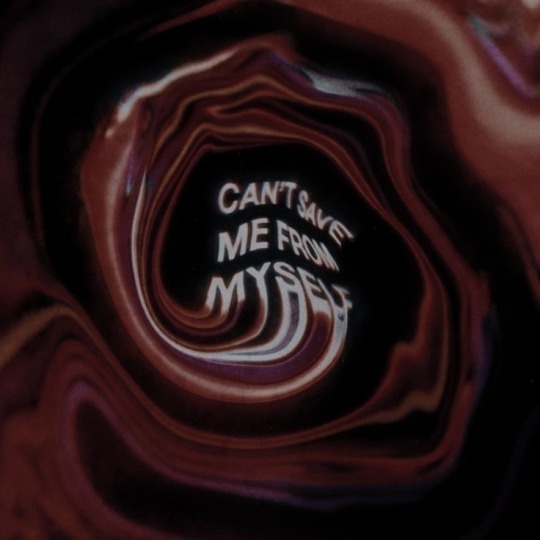



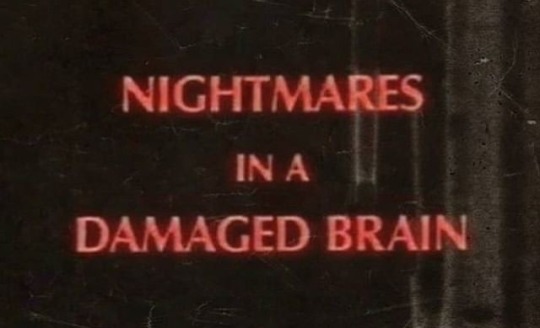
You are not a bad person. You are a good person who sometimes gets upset about certain things. And that’s normal. Everybody does that. But what makes a difference is your self-awareness. That you can recognise your shortcomings and are more than willing to develop yourself to transcend above and beyond~👾🛸👽🐣🪺🦉



#Pink Punk Mads#red#red aesthetic#angry#sad things#sad thoughts#sadgirl#mental health#mental health support#millennials#gen z#youth#glow up#self esteem#self worth#empath#highly sensitive person#autistic positivity#autistic girl#actually autistic
60 notes
·
View notes
Text
really tired of seeing gen z on tiktok romanticizing and glorifying psych hospitals by calling them “vacations” and posting about how fun they are when in reality most hospitals will not let you have your phone, they don’t have fun group activities everyday, you don’t have your own room, you don’t get a three course meal etc.
and then i’ll see people come out of some hospitals being like “i was just having a silly little breakdown and people there were actually severely mentally ill?” like where do you think you are? you’re in a place designed to help severely mentally ill people and now you’re surprised that severely mentally ill people are there?
stop romanticizing psych hospitals. stop calling them ‘vacations’. stop making fun of people with debilitating disorders utilizing the facilities that are designed for them.
#not to say that people who are going through breakdowns don’t need the same help#i just see so many ignorant people talking about how fun they are#when they’re usually not#and yes i’m specifying gen z#anyway#mental health awareness#gen z#tiktok#psychiatry#𓆩♡𓆪 angel's thoughts 𓆩♡𓆪
30 notes
·
View notes
Text
when i'm looking at something that someone else did and it's not been done in the exact way i would have done it

#i'm insane btw#and yes this is about incorrect characterization but feel free to interpret it however you want#but zack snyder if only you knew the vendetta i have against you#meme#mental health#mental health memes#memes#haha#lol#funny#gen z humor#tumblr humor#humour#tumblr shitposting#shit posting#random shit#dc#dceu#fanfics#fictional characters#funny jokes#fandom memes#fandom culture
217 notes
·
View notes
Text

#gen z mood#mental health memes#depression memes#anxiety memes#autism memes#mentally unstable#mentally tired#mental illness memes#ocd memes#bpd meme#queer memes#gen z stuff#gen z quotes#gen z memes#dark humour#dark memes#dankest memes#wokememes#nihilism#tired memes
761 notes
·
View notes
Text
I died at 13

Any day now I’ll let you know
I’m not really here
No I mean you really don’t know
I’m not really here
I died a long time ago
What remains here is just my shell
#Punk Panda Sentimentality#poem#short poem#poems and poetry#poetry#spilled poetry#spilled words#spilled thoughts#literature#english literature#writblr#writerslife#Writerscommunity#youth#culture#millennials#gen z#mental health#trauma healing#spiritual healing
22 notes
·
View notes